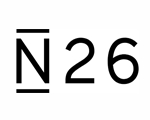If you took out a mortgage more than 7 years ago the probability is that at least part of it is in the form of a spaarhypotheek - the Dutch equivalent of a UK endowment mortgage.
In other words you would have (part of) your mortgage tied to a savings plan which - over the term of the plan - is designed to repay your mortgage with tax free money.
The traditional savings element of such mortgages used a "guaranteed" interest rate which was the same as your mortgage rate. Thus the premium you paid was back calculated from the gross amount that had to be available at the end of the term.
Thus, if you had a mortgage rate of 7% and a mortgage term of 30 years you would typically be paying a premium of €150 per month to reach your target of €136,134 at the end of the term.
Nowadays there are what is known as "Universal Life" plans (yes the Dutch use the English expression) which typically produce growth of 8% or more. They are the equivalent of the UK or US "Unit Linked" plans.
€.150 per month into one of these plans would produce €.222,806 at the end of the 30 year term. However, the rules have changed with regards to these plans. Anything over and above the mortgage sum becomes subject to asset tax at 1.2% per annum!
Therefore - for the same money - you would have a taxable (at low rates) lump sum of €86,672 over and above the amount required to redeem your mortgage.
Alternatively, of course, you could reduce your monthly costs to achieve the same goal and have no tax consequences.
If your current mortgage is more than 5 years old you are almost certainly paying more than necessary. Currently interest rates are anything from 5.00% to 6.0% depending on the type of mortgage you have and who you are borrowing from as well as the fixed term of the interest rate.
The other difficulty with this type of mortgage is that the savings plan is rarely transferable from one lender to another.
Nowadays mortgages frequently may be transferred from one property to another. So, if you have a good fixed-term mortgage it is worth looking at this possibility when you sell your first home to buy another. This at least avoids the difficulty of having to start a new savings plan with a new lender. Though it may still be worth your while to shop around for a better deal elsewhere!
As an independent financial advisor Strategies is free to seek mortgage offers for you from just about any insurance company in The Netherlands as well as a number of different banking groups. In other words we will do the "shopping around" for you.
Give me a call!
We will happily look at your current situation and advise you if there is a better alternative. The call - and any subsequent meeting - incurs no cost and implies no obligation on your part. We cannot promise to come up with a better alternative than the arrangement you already have but it will cost you nothing to find out.
What have you got to lose?
---
Peter Gibney is a consultant with Strategies based in Dordrecht. Strategies are a fully licensed insurance broker/financial advisor specialising in the expatriate market. Any questions arising from this series of articles or other none related matters may be directed to Peter on [phone] 078 844 0879 or {fa00x 084 751 2944 or {e-mail}
This article has been submitted by Peter Gibney



